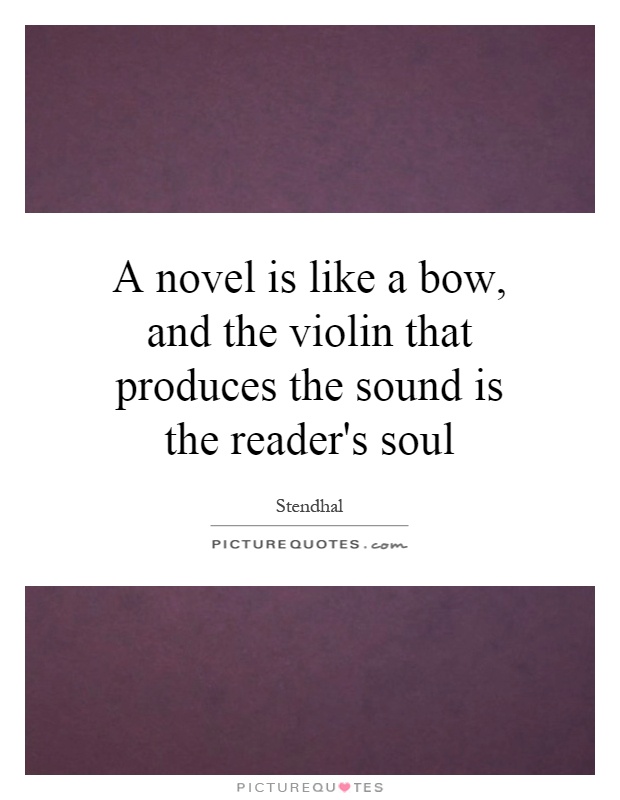A novel is like a bow, and the violin that produces the sound is the reader's soul

A novel is like a bow, and the violin that produces the sound is the reader's soul
In the context of Stendhal, the quote "A novel is like a bow, and the violin that produces the sound is the reader's soul" takes on a deeper meaning. Stendhal, whose real name was Marie-Henri Beyle, was a French writer known for his psychological insight and realistic portrayal of human emotions. His novels, such as "The Red and the Black" and "The Charterhouse of Parma," are considered classics of French literature and have had a lasting impact on the literary world.Stendhal's writing style is often characterized by its introspective and introspective nature, delving deep into the inner thoughts and emotions of his characters. His novels are not just stories, but complex psychological studies that explore the depths of human experience. In this sense, Stendhal's novels can be seen as the bow that sets the stage for the reader's soul to resonate with the music of the narrative.
Just as a bow is used to draw out the sound of a violin, Stendhal's novels serve as a vehicle for the reader to connect with the characters and themes of the story on a deeper level. The reader's soul, like the violin, is the instrument through which the emotions and ideas of the novel are expressed. As the reader immerses themselves in the world of Stendhal's fiction, they are able to experience the full range of human emotions – love, jealousy, ambition, despair – in a way that resonates with their own innermost feelings.
Stendhal's ability to capture the complexities of human nature and the intricacies of the human heart is what makes his novels so powerful and enduring. Through his writing, he invites readers to explore the depths of their own souls and to confront the truths and contradictions that lie within. Like a skilled musician playing a violin, Stendhal plays upon the strings of the reader's soul, evoking a symphony of emotions and insights that linger long after the final page has been turned.












 Friendship Quotes
Friendship Quotes Love Quotes
Love Quotes Life Quotes
Life Quotes Funny Quotes
Funny Quotes Motivational Quotes
Motivational Quotes Inspirational Quotes
Inspirational Quotes